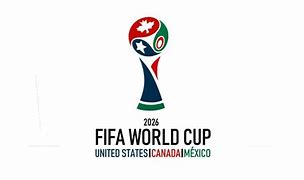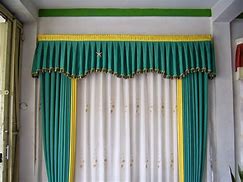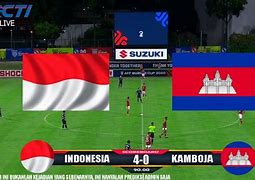
Records and statistics
There are currently four post-tournament awards
Matchday 1 Matchday 2 Matchday 3
Kualifikasi Piala Dunia FIFA 2026 Oseania diperkirakan berlangsung mulai September 2024 hingga Maret 2025. Turnamen 2026 ini merupakan edisi kualifikasi Oseania ke-16 dan menandai pertama kalinya OFC mendapat slot kualifikasi langsung ke Piala Dunia FIFA.[1]
Kesebelas negara diharapkan mengikuti kualifikasi.
Struktur kualifikasinya adalah sebagai berikut:
Semua Anggota Yang Akan Bermain Yaitu
Jadwal Semua Pertandingan Adalah
Babak Play-off antar konfederasi di jadwalkan pada Maret 2026
Pengundian untuk dua putaran pertama diadakan di markas besar FIFA di Swiss pada tanggal 18 Juli mulai pukul 9:00 CEST (UTC+2).[2][3] Meskipun diumumkan sebelum rilis resminya, penempatan untuk pengundian didasarkan pada Peringkat Dunia FIFA tanggal 18 Juli 2024 (ditunjukkan dalam tanda kurung di bawah).
Untuk babak pertama, empat tim dengan peringkat terendah bertanding dalam play-off eliminasi tunggal untuk menentukan tim mana yang maju ke babak kedua. Tim dengan peringkat tertinggi menghadapi tim dengan peringkat terendah dan tim peringkat kedua menghadapi tim peringkat ketiga di semifinal, dan pemenang pertandingan tersebut saling berhadapan di final.
Untuk putaran kedua, setiap grup berisi satu tim dari Pot 1, dua dari Pot 2, dan satu dari Pot 3 (yang juga termasuk tempat penampung bagi pemenang putaran pertama).
Catatan: Tim yang dicetak tebal lolos ke babak ketiga. Tim yang dicetak miring hanya berkompetisi di babak pertama.
Pengundian babak pertama akan dilakukan pada Juli 2024 dan pertandingan akan dimainkan pada 2–10 September 2024 di Samoa. Empat tim dengan peringkat terendah akan bertanding dalam seri sistem gugur, dan pemenangnya akan maju untuk bergabung dengan tujuh tim dengan peringkat tertinggi di babak kedua.[5]
Pemenangnya akan maju ke babak kedua.
Babak kedua akan berlangsung pada 7 Oktober hingga 19 November 2024 dengan dua grup yang terdiri dari empat tim yang bermain dalam format liga. Pertandingan akan dimainkan di Selandia Baru, Papua Nugini, dan Vanuatu[6].
Babak ketiga dijadwalkan berlangsung di Selandia Baru pada bulan Maret 2025.[32] Pemenangnya akan lolos ke Piala Dunia FIFA 2026 dan runner-up akan melaju ke play-off antar konfederasi.[1]
Pemenangnya lolos ke Piala Dunia FIFA 2026. Yang kalah maju ke babak play-off antar-konfederasi.
Pemenang Semifinal 1 v Pemenag Semifinal 2
24 Maret 2025 (2025-03-24)
A new era (2006–present)
Australia joined the Asian Football Confederation on 1 January 2006, ceasing to be a member of OFC, leaving New Zealand as the only major power in the OFC. The 2007 South Pacific Games, won by New Caledonia, served as a qualifying round for the three lowest ranked teams in the OFC, with the winners qualifying for the 2008 OFC Nations Cup. The 2008 OFC Nations Cup was played without a fixed venue and with four teams playing each other at home and away in one group. The tournament also served as part of the OFC's qualifying competition for the 2010 FIFA World Cup. New Zealand emerged easily as winners for the fourth time ahead of New Caledonia, winning five matches of six. Surprisingly, Fiji won the last match against New Zealand in Lautoka (Fiji) for 2–0 with two goals of Roy Krishna. The top-scorer Shane Smeltz (New Zealand) scored eight goals: four against the runners up New Caledonia beaten 3–1 away and 3–0 at home.
The 2012 edition of the tournament was originally meant to be played in Fiji,[4] but they were stripped from hosting due to the ongoing legal dispute involving OFC general secretary Tai Nicholas and Fijian authorities. Hosting rights was moved to the Solomon Islands as they were joined by New Zealand, New Caledonia, Vanuatu, Tahiti, Fiji, Papua New Guinea and Samoa (winner of the qualifying tournament). The draw which was similar to the 2012 edition with them competing in two groups of four teams, with the top two in each group qualifying for the semi-finals. After 9 days, Tahiti and New Caledonia reached the final in Lawson Tama Stadium with Tahiti winning 1–0 with a goal from Steevy Chong Hue. With this, Tahiti became the first team other than Australia (no longer part of OFC) and New Zealand to be crowned Oceania champions.[5] The tournament also served as part of the OFC's qualifying competition for the 2014 FIFA World Cup.
After the cancellation of the 2020 OFC Nations Cup, the tournament was confirmed for 2024 as the 2024 OFC Men's Nations Cup.[6][7] The tournament will follow the same style, but will not serve as World Cup qualifiers.[8]
The first two editions were played without any qualifying rounds. For the successive three tournaments, Australia and New Zealand were seeded into the tournament automatically, while the remaining ten nations played to qualify. The Polynesian and Melanesian Cups, each played between five nations grouped on a geographical basis, served as qualifications via a round-robin tournament, with the highest ranked two teams in each competition qualifying for the actual OFC Nations Cup.
With the postponement and then cancellation of the Melanesian Cup, and a similar fate befalling its Polynesian equivalent, the format of the tournament changed in 2002. FIFA rankings determined the seedings of all twelve teams, and the lower six teams played a group stage for two qualifier positions into the main tournament. The 2002 Cup tournament proper was played with two groups of four teams (again in round-robin style), which led into a 4-way knockout stage, playing for the top four positions.
In 2004, the format changed once again, returning to a format similar to that of the 1996–2000 tournaments, with five teams each playing in two qualifying groups and Australia and New Zealand seeded to the actual tournament, played as a group stage of six, with a home and away Final played between the two highest-placed teams. This tournament doubled also as qualifying round for the 2006 FIFA World Cup.
For the 2008 tournament, the format altered again. The 2007 South Pacific Games football tournament served as a qualification tournament, with the gold, silver and bronze winning nations progressing to the main, round-robin format, tournament, for which New Zealand qualified automatically. New Zealand emerged as winners of the 2008 OFC Nations Cup, ahead of New Caledonia, and thus qualified for the 2009 FIFA Confederations Cup and a playoff with the fifth placed team from the AFC for a place in the 2010 FIFA World Cup.
More information Year, Teams ...
More information Team, Winner ...
Bold text denotes team was host country. 1 Australia left the OFC in 2006 and became a full member of the AFC.
There are currently four post-tournament awards
International football competition
The 2024 OFC Men's Nations Cup was the 11th edition of the OFC Men's Nations Cup, the quadrennial international men's football championship of Oceania organised by the Oceania Football Confederation (OFC). The tournament was played between 15 and 30 June 2024 in Fiji and Vanuatu.[1] The defending champions were New Zealand from the 2016 edition; the 2020 edition was cancelled due to the COVID-19 pandemic.[2] New Caledonia withdrew a few days before the start of the competition citing riots in the country, and the tournament played with seven teams.
A total of 13 matches were played, in which 46 goals were scored, at an average of 3.54 goals per match. Attendance at all stages of the tournament reached 41,400, averaging 3,185 viewers per match. The biggest score recorded in the tournament was 9–1 when Fiji defeated Samoa on the second day of Group B.[3][4]
New Zealand won the title for the sixth time in their history, after beating co-hosts Vanuatu in the final match with a score of 3–0,[5] so the All Whites successfully defended their title.[6] Tahiti secured third place after beating Fiji in the third place match, which placed them fourth. Fijian Roy Krishna finished the tournament as top scorer with five goals.[7] New Zealander Liberato Cacace also won the best player award,[8] while his compatriot Max Crocombe won the best goalkeeper award.[9] New Zealand also won the fair play award.[10]
Although New Zealand was selected as host for the final tournament in 2020 before it was eventually cancelled, in December 2023 it was announced that the 2024 edition of the tournament would be held in Vanuatu.[11][12]
In May 2024, following uncertainty around flight schedules, matches due to be played at the Luganville Soccer Stadium in Luganville, Vanuatu were moved to the HFC Bank Stadium in Suva, Fiji and the VFF Freshwater Stadium in Port Vila, Vanuatu.[13]
Team failed to qualify
Team withdrew or suspended
The 4 lowest ranked teams originally entered for qualification were played in a single group tournament, as in previous editions in 2012 and 2016. Tuvalu and Kiribati were not full members of the OFC and were therefore excluded from participation. American Samoa did not register before qualifying.
In the qualifying tournament, the three lowest-ranked teams in the last edition of the tournament in 2016 (because American Samoa did not register), competed in a Round robin format in a single round, which was held in a single venue in Tonga, where the winner qualified for the final tournament.[11] On 5 June 2024, New Caledonia announced their withdrawal from the tournament due to the serious crisis in the country.[14]
The tournament followed the previous system of a preliminary qualification round followed by an eight-team (eventually seven) group stage, in which the top two places in each advanced to the semi-finals. In these, the two losers of each will compete in the play-off for third place, while the winners of these will compete in the final to determine the tournament champion.[15]
The draw was held on 24 January 2024 at OFC Home of Football in Auckland, New Zealand. The teams were divided into two groups of four each, with the three initial pots determined based on the final ranking of the 2016 OFC Nations Cup, listed below.[16][17]
All times are local, UTC+11 (Group A) and UTC+12 (Group B).
Tie-breaking criteria for group play[18]
The ranking of teams in the group stage was determined as follows:
In the knockout stage, if a match was level at the end of normal playing time, extra time was played (two periods of 15 minutes each). If still tied after extra time, the match was decided by a penalty shoot-out.[18]
There were 46 goals scored in 13 matches, for an average of 3.54 goals per match.
On 28 February 2024, Oceania Football Confederation (OFC) announced that all OFC competitions in the 2024–2025 season, including the 2024 OFC Men's Nations Cup, would be streamed by FIFA+.[46]
OFC association football tournament for men's national teams
The OFC Men's Nations Cup, known as the OFC Nations Cup before the 2024 edition, is the primary association football competition contested by the senior men's national teams of the members of the Oceania Football Confederation (OFC), determining the continental champion of Oceania. The winning team became the champion of Oceania and until 2016 qualified for the FIFA Confederations Cup.[2]
Historically, a very large gulf separated Australia and New Zealand from the smaller island competitors, and little attention was paid to the tournament by the rest of the football world. The 2012 OFC Nations Cup is the only edition to date not won by either New Zealand or Australia, being won by Tahiti instead.
First editions (1973–1980)
This tournament began in 1973 as the "Oceania Cup". This first edition was staged without a qualifying round and was won by the host in Auckland, New Zealand, that defeated Tahiti, 2–0. The tournament was characterised by the absence of the Australian team and the presence of some teams not members of FIFA, such as New Hebrides, which later became Vanuatu after gaining independence in 1980.
The second edition of the Oceania Cup took place in 1980 in New Caledonia, at that time not a FIFA member. Australia played the final match in Nouméa and defeated Tahiti, 4–2. The tournament was characterised by a poor result for New Zealand: out in the group stage losing against Tahiti (3–1) and Fiji (4–0). Two years later they qualified for the 1982 FIFA World Cup. These two editions were the only without qualifying rounds. After this edition the tournament was discontinued. So Australia maintained the Oceania Champion title for 16 years without playing in any tournaments. Between the years of absence (1981–1995) the most important Oceanian region tournament was the Trans-Tasman Cup played only between Australia and New Zealand.
First editions (1973–1980)
This tournament began in 1973 as the "Oceania Cup". This first edition was staged without a qualifying round and was won by the host in Auckland, New Zealand, that defeated Tahiti, 2–0. The tournament was characterised by the absence of the Australian team and the presence of some teams not members of FIFA, such as New Hebrides, which later became Vanuatu after gaining independence in 1980.
The second edition of the Oceania Cup took place in 1980 in New Caledonia, at that time not a FIFA member. Australia played the final match in Nouméa and defeated Tahiti, 4–2. The tournament was characterised by a poor result for New Zealand: out in the group stage losing against Tahiti (3–1) and Fiji (4–0). Two years later they qualified for the 1982 FIFA World Cup. These two editions were the only without qualifying rounds. After this edition the tournament was discontinued. So Australia maintained the Oceania Champion title for 16 years without playing in any tournaments. Between the years of absence (1981–1995) the most important Oceanian region tournament was the Trans-Tasman Cup played only between Australia and New Zealand.
Return, every two years (1996–2004)
In 1996, when OFC reached the official status of Confederation for FIFA, the tournament reappeared as the "Oceania Nations Cup" and served as a qualifier for the Confederations Cup. The 1996 edition lacked a host nation but had its inaugural qualifying round, contested with four teams playing semifinals and final match on two legs both: Australia and New Zealand, who played the semifinal also for the Trans-Tasman Cup, and the second semifinal match between Tahiti as Polynesia Cup holders and Solomon Islands as Melanesia Cup holders. Australia defended its title of The Cup winning easily in the final match, on two legs, against Tahiti (6–0 and 5–0). The topscorer of this tournament, Kris Trajanovski, scored all his seven goals in the final tie: four in the first leg in Papeete (Tahiti) and three in the second leg in Canberra (Australia). Thanks to this result, this Australian team, managed by the English Terry Venables and not by the Scottish Oceania Champion Eddie Thomson, took part to the 1997 FIFA Confederations Cup in Saudi Arabia.
In the 1998 edition six teams participated, hosted by Australia and dominated by Australia and New Zealand. In the final match, played in Brisbane, New Zealand beat the host Australia 1–0 with a goal by Mark Burton. In this edition the Australian player Damian Mori scored 10 goals, the standing record. He is also the overall Oceania Nations Cup top scorer with 14 goals, scored in three editions: one in 1996, ten in 1998 and three in 2002.
The fifth edition was hosted by Tahiti in 2000. The tournament structure was confirmed and again the tournament was dominated by Australia and New Zealand who reached the final match in Papeete. Australia won their third title by a score of 2–0, qualifying for the 2001 FIFA Confederations Cup. Fiji, who qualified for this edition, was forced to withdraw due to civil war and was replaced by Vanuatu, who impressed in the semifinal against Australia: the Socceroos, managed by Frank Farina, won 1–0 thanks only to a penalty kick by Kevin Muscat. Two years later the Australian team finished third in the 2001 FIFA Confederations Cup in South Korea and Japan.
For the 2002 edition, hosted by New Zealand, eight teams participated, divided into two groups won by Australia and New Zealand. This was their third consecutive final match. The Australian side won the semifinal against a brave Tahiti only after extra time. Soccer Australia was involved in financial problems: the non-existent financial contribution meant that the Australian players had to pay their own way to get to New Zealand, so Scott Chipperfield became the only one of Australia's large European contingent to answer the call and perform for his country in their time of need, resulting in a weak team for the tournament. So the final was won for the third time by the All Whites beating their historical rivals 1–0 in Auckland with a late Ryan Nelsen goal.
In the 2004 edition, which served also as the 2006 FIFA World Cup qualification[3] and was played in Australia, six nations took part playing each other in a unique group, with the first two playing a final match in two legs. During the group stage Vanuatu surprisingly beat New Zealand 4–2, but lost all their remaining matches. This and a draw with Australia (2–2) allowed Solomon Islands to claim second place and a berth in the final match against Australia. In the final, the Solomon Islands were beaten 5–1 on their home ground Honiara and 6–0 in Sydney. Moreover, this was the first, and until today the only time that a coach, Frank Farina, has won the Oceania Nations Cup trophy twice. Two years later, managed by Dutchman Guus Hiddink and composed of many 2004 Oceania Nations Cup scorers such as Tim Cahill, Harry Kewell, Mark Bresciano, Brett Emerton, John Aloisi, Australia reached the second round of the 2006 FIFA World Cup in Germany. However, this was the fourth and last OFC title for Australia: in 2006 they decided to join AFC, changing considerably the Oceania football scene.
Play-off antar konfederasi
Tim runner-up akan bergabung dengan satu tim dari AFC, CAF, dan CONMEBOL dan dua dari CONCACAF dalam play-off antar konfederasi. Tim-tim akan diberi peringkat menurut Peringkat Dunia FIFA Pria, dengan empat tim dengan peringkat terendah bermain dalam dua pertandingan eliminasi tunggal. Pemenang akan bertemu dengan dua tim dengan peringkat tertinggi dalam serangkaian pertandingan eliminasi tunggal lainnya, dengan pemenang pertandingan ini lolos ke Piala Dunia di Amerika Serikat, Kanada, dan Meksiko.[33]
Return, every two years (1996–2004)
In 1996, when OFC reached the official status of Confederation for FIFA, the tournament reappeared as the "Oceania Nations Cup" and served as a qualifier for the Confederations Cup. The 1996 edition lacked a host nation but had its inaugural qualifying round, contested with four teams playing semifinals and final match on two legs both: Australia and New Zealand, who played the semifinal also for the Trans-Tasman Cup, and the second semifinal match between Tahiti as Polynesia Cup holders and Solomon Islands as Melanesia Cup holders. Australia defended its title of The Cup winning easily in the final match, on two legs, against Tahiti (6–0 and 5–0). The topscorer of this tournament, Kris Trajanovski, scored all his seven goals in the final tie: four in the first leg in Papeete (Tahiti) and three in the second leg in Canberra (Australia). Thanks to this result, this Australian team, managed by the English Terry Venables and not by the Scottish Oceania Champion Eddie Thomson, took part to the 1997 FIFA Confederations Cup in Saudi Arabia.
In the 1998 edition six teams participated, hosted by Australia and dominated by Australia and New Zealand. In the final match, played in Brisbane, New Zealand beat the host Australia 1–0 with a goal by Mark Burton. In this edition the Australian player Damian Mori scored 10 goals, the standing record. He is also the overall Oceania Nations Cup top scorer with 14 goals, scored in three editions: one in 1996, ten in 1998 and three in 2002.
The fifth edition was hosted by Tahiti in 2000. The tournament structure was confirmed and again the tournament was dominated by Australia and New Zealand who reached the final match in Papeete. Australia won their third title by a score of 2–0, qualifying for the 2001 FIFA Confederations Cup. Fiji, who qualified for this edition, was forced to withdraw due to civil war and was replaced by Vanuatu, who impressed in the semifinal against Australia: the Socceroos, managed by Frank Farina, won 1–0 thanks only to a penalty kick by Kevin Muscat. Two years later the Australian team finished third in the 2001 FIFA Confederations Cup in South Korea and Japan.
For the 2002 edition, hosted by New Zealand, eight teams participated, divided into two groups won by Australia and New Zealand. This was their third consecutive final match. The Australian side won the semifinal against a brave Tahiti only after extra time. Soccer Australia was involved in financial problems: the non-existent financial contribution meant that the Australian players had to pay their own way to get to New Zealand, so Scott Chipperfield became the only one of Australia's large European contingent to answer the call and perform for his country in their time of need, resulting in a weak team for the tournament. So the final was won for the third time by the All Whites beating their historical rivals 1–0 in Auckland with a late Ryan Nelsen goal.
In the 2004 edition, which served also as the 2006 FIFA World Cup qualification[3] and was played in Australia, six nations took part playing each other in a unique group, with the first two playing a final match in two legs. During the group stage Vanuatu surprisingly beat New Zealand 4–2, but lost all their remaining matches. This and a draw with Australia (2–2) allowed Solomon Islands to claim second place and a berth in the final match against Australia. In the final, the Solomon Islands were beaten 5–1 on their home ground Honiara and 6–0 in Sydney. Moreover, this was the first, and until today the only time that a coach, Frank Farina, has won the Oceania Nations Cup trophy twice. Two years later, managed by Dutchman Guus Hiddink and composed of many 2004 Oceania Nations Cup scorers such as Tim Cahill, Harry Kewell, Mark Bresciano, Brett Emerton, John Aloisi, Australia reached the second round of the 2006 FIFA World Cup in Germany. However, this was the fourth and last OFC title for Australia: in 2006 they decided to join AFC, changing considerably the Oceania football scene.
A new era (2006–present)
Australia joined the Asian Football Confederation on 1 January 2006, ceasing to be a member of OFC, leaving New Zealand as the only major power in the OFC. The 2007 South Pacific Games, won by New Caledonia, served as a qualifying round for the three lowest ranked teams in the OFC, with the winners qualifying for the 2008 OFC Nations Cup. The 2008 OFC Nations Cup was played without a fixed venue and with four teams playing each other at home and away in one group. The tournament also served as part of the OFC's qualifying competition for the 2010 FIFA World Cup. New Zealand emerged easily as winners for the fourth time ahead of New Caledonia, winning five matches of six. Surprisingly, Fiji won the last match against New Zealand in Lautoka (Fiji) for 2–0 with two goals of Roy Krishna. The top-scorer Shane Smeltz (New Zealand) scored eight goals: four against the runners up New Caledonia beaten 3–1 away and 3–0 at home.
The 2012 edition of the tournament was originally meant to be played in Fiji,[4] but they were stripped from hosting due to the ongoing legal dispute involving OFC general secretary Tai Nicholas and Fijian authorities. Hosting rights was moved to the Solomon Islands as they were joined by New Zealand, New Caledonia, Vanuatu, Tahiti, Fiji, Papua New Guinea and Samoa (winner of the qualifying tournament). The draw which was similar to the 2012 edition with them competing in two groups of four teams, with the top two in each group qualifying for the semi-finals. After 9 days, Tahiti and New Caledonia reached the final in Lawson Tama Stadium with Tahiti winning 1–0 with a goal from Steevy Chong Hue. With this, Tahiti became the first team other than Australia (no longer part of OFC) and New Zealand to be crowned Oceania champions.[5] The tournament also served as part of the OFC's qualifying competition for the 2014 FIFA World Cup.
After the cancellation of the 2020 OFC Nations Cup, the tournament was confirmed for 2024 as the 2024 OFC Men's Nations Cup.[6][7] The tournament will follow the same style, but will not serve as World Cup qualifiers.[8]
The first two editions were played without any qualifying rounds. For the successive three tournaments, Australia and New Zealand were seeded into the tournament automatically, while the remaining ten nations played to qualify. The Polynesian and Melanesian Cups, each played between five nations grouped on a geographical basis, served as qualifications via a round-robin tournament, with the highest ranked two teams in each competition qualifying for the actual OFC Nations Cup.
With the postponement and then cancellation of the Melanesian Cup, and a similar fate befalling its Polynesian equivalent, the format of the tournament changed in 2002. FIFA rankings determined the seedings of all twelve teams, and the lower six teams played a group stage for two qualifier positions into the main tournament. The 2002 Cup tournament proper was played with two groups of four teams (again in round-robin style), which led into a 4-way knockout stage, playing for the top four positions.
In 2004, the format changed once again, returning to a format similar to that of the 1996–2000 tournaments, with five teams each playing in two qualifying groups and Australia and New Zealand seeded to the actual tournament, played as a group stage of six, with a home and away Final played between the two highest-placed teams. This tournament doubled also as qualifying round for the 2006 FIFA World Cup.
For the 2008 tournament, the format altered again. The 2007 South Pacific Games football tournament served as a qualification tournament, with the gold, silver and bronze winning nations progressing to the main, round-robin format, tournament, for which New Zealand qualified automatically. New Zealand emerged as winners of the 2008 OFC Nations Cup, ahead of New Caledonia, and thus qualified for the 2009 FIFA Confederations Cup and a playoff with the fifth placed team from the AFC for a place in the 2010 FIFA World Cup.
Bold text denotes team was host country. 1 Australia left the OFC in 2006 and became a full member of the AFC.
Pencetak gol terbanyak
Sebanyak 60 gol telah dicetak pada 15 pertandingan, dengan rata-rata 4 gol per pertandingan (per 18 November 2024). Pemain dengan cetak tebal masih bermain pada turnamen ini.
Di bawah ini adalah daftar lengkap pencetak gol untuk setiap babak:
Table OFC Nations Cup qualification 2024
association football tournament in Oceania
The OFC Men's Nations Cup, known as the OFC Nations Cup before the 2024 edition, is the primary association football competition contested by the senior men's national teams of the members of the Oceania Football Confederation (OFC), determining the continental champion of Oceania. The winning team became the champion of Oceania and until 2016 qualified for the FIFA Confederations Cup.[2]
Quick Facts Organising body, Founded ...
Historically, a very large gulf separated Australia and New Zealand from the smaller island competitors, and little attention was paid to the tournament by the rest of the football world. The 2012 OFC Nations Cup is the only edition to date not won by either New Zealand or Australia, being won by Tahiti instead.























